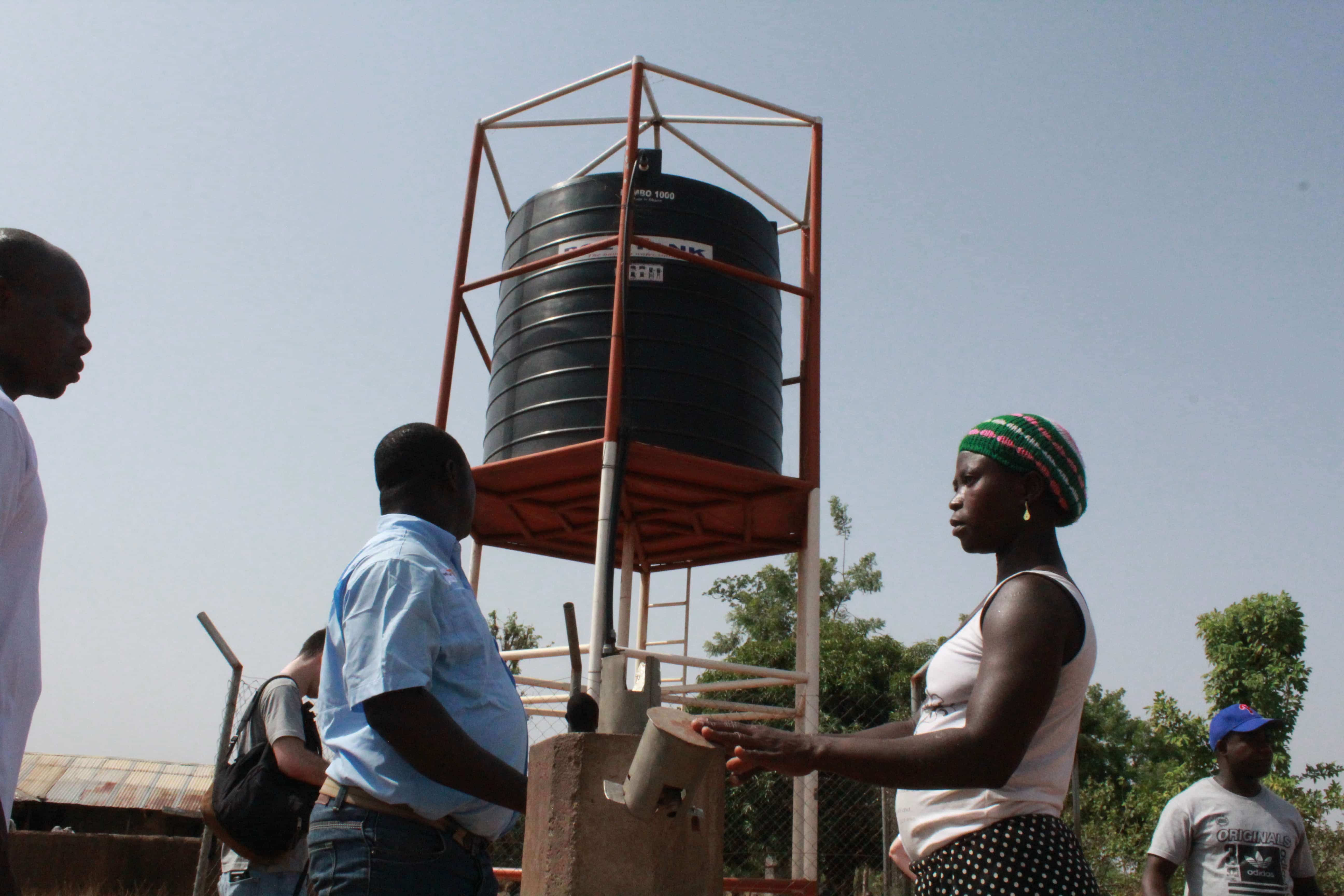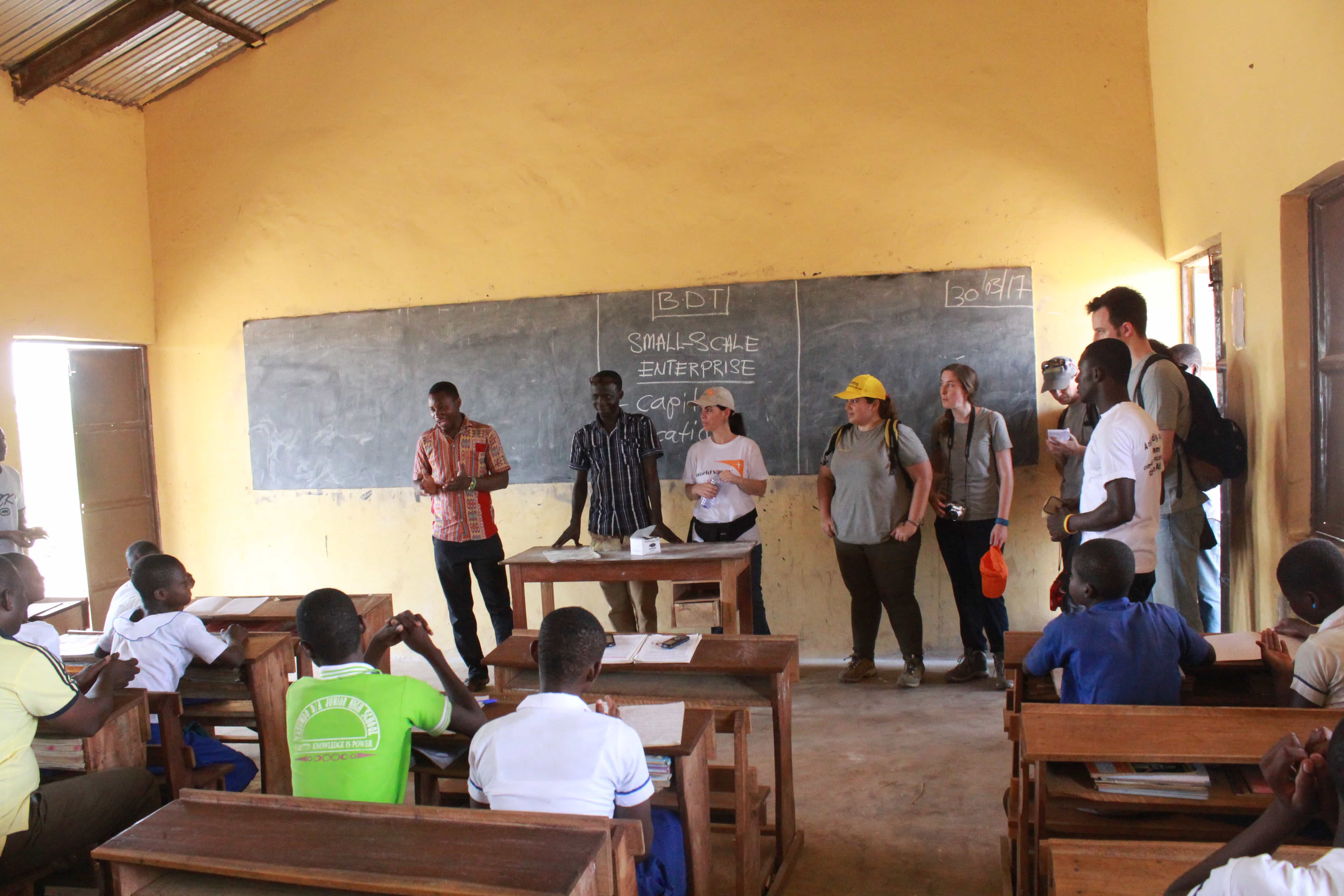Ferrovial, through a Social Infrastructures programme, has contributed to providing access to potable water in one of the poorest districts in Ghana’s northern region.
The problem of water scarcity affects more than 40% of the world’s population, an alarming fact that is even more troubling if we take the serious effects of climate change into account. United Nations included universal access to potable water in the 17 Sustainable Development Goals (SDGs) for 2030. To achieve it, the need arises to invest in building appropriate infrastructures while also providing the most affected populations with the necessary knowledge.
Since its launch in 2011, Ferrovial’s Social Infrastructures programme has succeeded in improving the daily lives of thousands of people at social risk in Africa and Latin America by creating infrastructures that improve, provide coverage and give access to potable water to the population. One of the most special and successful projects was undertaken in Zabzugu, one of the poorest districts in Ghana’s Northern Region, where 62.7% of communities does not have sufficient water supply.

Ferrovial, together with World Vision, undertook to bring potable water to four communities, a school and a health centre in this district. It was all achieved through powering four wells with solar energy. This system, as well as helping to reduce dependency on the use of electricity, is an economical and sustainable option compared to other conventional sources of energy. Furthermore, it is a renewable and inexhaustible source that is easy to maintain.
The project kicked off in January 2017 and now we know the results of the efforts made by Ferrovial, World Vision Ghana and all the volunteers. It has directly and indirectly benefited a total of 7,940 people, including the inhabitants of six different communities (Sabare I, Tasundo I and II, Moncheni and Zokurli A and B), the pupils of six schools and the users of the Sabare health centre.
An essential issue in extending the project’s benefits was to train the population in the necessary knowledge to maintain the care and hygiene of the water, something that was effortlessly achieved. In fact, at the time of closing the project, almost 3,000 people were trained in the proper use of water and the systems and they expect to continue doing so in the next few months.

Regarding the tools needed for attaining the main objective, Ferrovial was in charge of mechanizing four wells with solar-powered extraction pumps and, in each community, health centre and school, tanks and fountains were installed in easily accessed spots so that water reaches the highest number of people and is available to them, giving priority to the most vulnerable population, children and the sick. The project was made possible by the involvement of all parties concerned.
Social impact on a committed population
Opening the tap and being able to drink potable water may seem like a totally normal action, but for the population of this district’s rural communities, where they have to walk several kilometres to find water, it is the very opposite. Access to potable water has transformed their lives and the impact has been highly positive. One of the major benefits has been the improvement in the hygiene conditions and habits of the communities and of the schools and health centre alike. Access to fresh water has improved the children’s school attendance, and the incidence of diseases, especially diarrheal ailments and typhoid fever, has been reduced.
The commitment of the communities was one of the factors that made the effectiveness of the project possible, since they led the decision-taking process on the location of the fountains and tanks and each one defined their own water sustainability plan. In addition to installing systems, four water management and sanitation teams as well as volunteers and mechanics were trained in the proper management of the systems. A total of 2,915 people were trained in the hygienic use of water and in environmental care, and at World Vision they expect to continue training the rest of the beneficiaries over the next few months.
Recent data issued by the WHO and UNICEF shows that an estimated 2.1 billion people lack access to safely managed potable water services and that by 2025 half the world population will live in water-scarce areas. This is just another step towards one of the SDGs for 2030, since thousands of people continue to suffer from a lack of potable water and we have to ensure that everyone can enjoy safe access to it.







